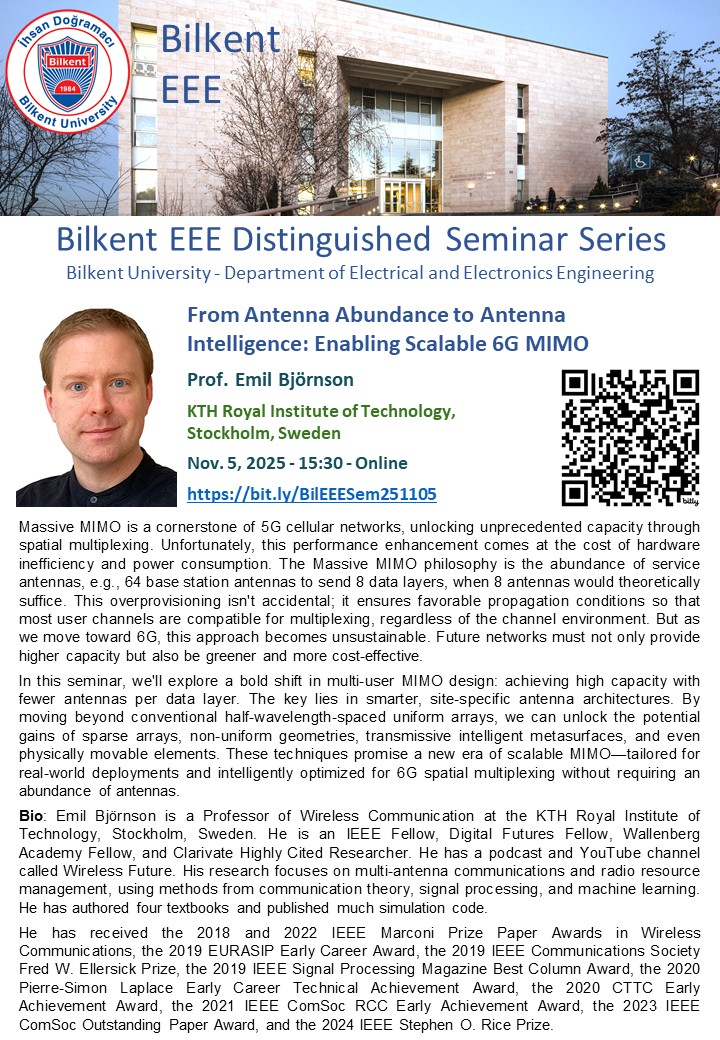
Prof. Emil Björnson
KTH Royal Institute of Technology, Stockholm, Sweden
Date/Time: Nov 5, 2025 – 15:30 – Online
From Antenna Abundance to Antenna Intelligence: Enabling Scalable 6G MIMO
Massive MIMO is a cornerstone of 5G cellular networks, unlocking unprecedented capacity through spatial multiplexing. Unfortunately, this performance enhancement comes at the cost of hardware inefficiency and power consumption. The Massive MIMO philosophy is the abundance of service antennas, e.g., 64 base station antennas to send 8 data layers, when 8 antennas would theoretically suffice. This overprovisioning isn’t accidental; it ensures favorable propagation conditions so that most user channels are compatible for multiplexing, regardless of the channel environment. But as we move toward 6G, this approach becomes unsustainable. Future networks must not only provide higher capacity but also be greener and more cost-effective.
In this seminar, we’ll explore a bold shift in multi-user MIMO design: achieving high capacity with fewer antennas per data layer. The key lies in smarter, site-specific antenna architectures. By moving beyond conventional half-wavelength-spaced uniform arrays, we can unlock the potential gains of sparse arrays, non-uniform geometries, transmissive intelligent metasurfaces, and even physically movable elements. These techniques promise a new era of scalable MIMO—tailored for real-world deployments and intelligently optimized for 6G spatial multiplexing without requiring an abundance of antennas.
Bio: Emil Björnson is a Professor of Wireless Communication at the KTH Royal Institute of Technology, Stockholm, Sweden. He is an IEEE Fellow, Digital Futures Fellow, Wallenberg Academy Fellow, and Clarivate Highly Cited Researcher. He has a podcast and YouTube channel called Wireless Future. His research focuses on multi-antenna communications and radio resource management, using methods from communication theory, signal processing, and machine learning. He has authored four textbooks and published much simulation code.
He has received the 2018 and 2022 IEEE Marconi Prize Paper Awards in Wireless Communications, the 2019 EURASIP Early Career Award, the 2019 IEEE Communications Society Fred W. Ellersick Prize, the 2019 IEEE Signal Processing Magazine Best Column Award, the 2020 Pierre-Simon Laplace Early Career Technical Achievement Award, the 2020 CTTC Early Achievement Award, the 2021 IEEE ComSoc RCC Early Achievement Award, the 2023 IEEE ComSoc Outstanding Paper Award, and the 2024 IEEE Stephen O. Rice Prize.